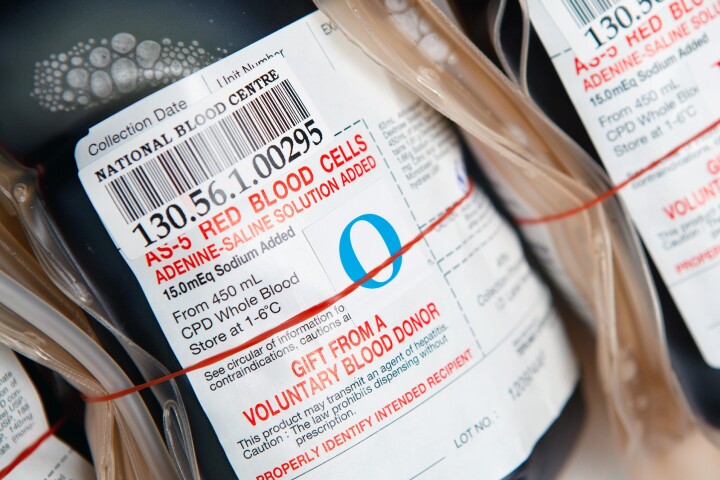February 13, 2009 Ecstasy use is widespread across the globe, and has been for more than 20 years now. If you haven't used it yourself, chances are that several of your acquaintances have - and it's recognized as an integral part of the rave and nightclub scenes. While there are occasional deaths and more frequent hospitalizations related to Ecstasy use, some argue that as illicit drugs go, it has far fewer negative effects than the real bad boys - heroin, crack, ice - so why is it treated by lawmakers as a class A or schedule 1 drug with penalties attached to it as severe as with heroin? Many times the argument has been made that Ecstasy's long term effects on the brain aren't well understood - but a recent UK review by a government advisory council has sifted through more than 20 years' worth of evidence to come to the conclusion that yes, Ecstasy can be shown to cause cognitive impairment, memory loss and depression. But the effects are so slight that users still fall well within the normal ranges. The report concludes with a recommendation that Ecstasy be re-classified down to the level of class B drugs like marijuana.
History and classification of MDMA
MDMA (3,4-methylenedioxy-N-methamphetamine) was first discovered nearly 100 years ago by German chemists who were trying to create substances that controlled abnormal bleeding. It was dropped at the time in favor of other compounds, but resurrected in the 1950s as part of American and German army research into various psychotropic substances.
It first appeared as a rare street drug in the 1970s, and was regularly used by some psychotherapists to help patients be less defensive and more open in their therapy sessions. In the United States, Ecstasy was legal and unregulated until mid-1985, but at this point, the Drug Enforcement Agency (DEA) classified MDMA as a Shedule 1 drug, putting it on a par with the most dangerous and least medically useful drugs in circulation, such as heroin.
This classification was widely disputed, including by the judge overseeing the initial classification hearing, who recommended that MDMA should be classified as a Schedule 3 controlled substance - essentially a prescription medication - because it had a significantly lower potential for abuse than schedule 1 or 2 drugs, accepted medical uses, and moderate or low levels of physical dependence among users. Essentially the DEA overruled its own Administrative Law Judge in the decision to classify MDMA as Schedule 1 - and more recently, moves from the U.S. congress have seen penalties for MDMA possession and trafficking leap by nearly 3,000% to a point where possession of a gram of ecstasy is treated the same as possession of a gram of heroin.
Effects of Ecstasy
Despite the harsh legal treatment attached to it, Ecstasy has become an exceptionally popular party drug since the mid-1980s, due to its cheap manufacture, wide availability and association with the dance music scene in many countries. Users experience a sense of euphoria, a feeling of connection and intimacy with others, a reduction in anxiety, a sense of peace, self-acceptance and empathy - as well as a long-lasting surge of energy that lets them dance for hours on end.
It operates primarily by causing the release of a surge of serotonin in the synapses of the brain. Once the brain's store of serotonin is depleted through an MDMA rush, it can take several days to build back up again to normal levels, meaning that users often experience depression and lack of energy a few days after using the drug.
Long-Term Effects of Ecstasy
The long-term effects of the drug have been the object of wide speculation, as they form a large part of the argument for strict control and high penalties. Anecdotal evidence from users has reported extreme and lasting cases of depression, loss of cognitive function and other mental impairments that subjects attribute to their Ecstasy use - but there has been no real scientific consensus about possible long-term damage to the average user.
Recently, the UK Advisory Council on the Misuse of Drugs published a paper comprising the biggest ever review of the available scientific evidence in order to determine the long-term effects of ecstasy use - and while there are definitely noticeable declines in some areas of cognitive performance, and a slight extra tendency toward depression, the evidence seems to show that moderate Ecstasy users suffer few ill effects in the long run.
In fact, the report goes so far as to recommend that UK lawmakers re-classify MDMA as a class B drug - the same classification as marijuana, and amend penalties to reflect the 'balance of harms' Ecstasy exhibits in relation to other drugs. The report is clear in maintaining that MDMA use is still to be viewed as a dangerous and potentially lethal risk.
It's worth noting that many Ecstasy users also take a range of other drugs, from alcohol and cocaine to LSD, ketamine and others, which may well have a confounding effect on the results of the studies.
Click to view the MDMA study in full - otherwise, here's a summary of some of the report's findings:
The High
- MDMA produces a sense of well-being and empathy with others
- It does not predispose users to violence or troublemaking
- Users maintain a sense of connection with reality, and the substance does not usually cause "bad trips"
- MDMA rarely causes paranoid feelings or aggression. It improves arousal, energy, attention and concentration, where alcohol can impair them
- Although it usually reduces anxiety, some users experience panic attacks
- MDMA can actually improve some aspects of driving performance, while inhibiting others
Short Term Issues
- Users can 'come down' from an MDMA high with much lower serotonin levels than usual. In regular weekend users this depression, which can occur days after the initial exposure, is sometimes referred to as "suicide Tuesday"
- High doses are undoubtedly harmful and may lead to hospitalization or death - either by direct toxicity, extreme hyperthermia, dehydration or water intoxication linked with dance parties, or other reasons. However, given its widespread use, fatalities are relatively low compared with other class A drugs
Long Term Issues
- Some animal studies have shown that high doses of MDMA in non-human primates can cause long-term damage to the serotonin nerves in the brain. The average user takes a smaller and safer dose, but it is possible that the human brain is more susceptible to damage
- No evidence for any effect on the dopamine system has been found - this distinguishes MDMA from other stimulants such as methylamphetamine and cocaine
- One study found that 'very heavy' users who had consumed more than 700 tablets of MDMA showed changes in brain metabolism at the frontal cortex
- Over 100 studies have found a small but consistent negative effect of MDMA on cognitive and psychomotor function. The effect was statistically significant but users still remained well within the 'normal' range. These effects appear to be permanent, as former users without recent exposure to the drug showed performance deficits that matched or exceeded those seen in current users. Self-rated measures of performance showed bigger negative effects, indicating a degree of self-concern in the users
- The combination of available evidence shows that MDMA use is correlated with a small but significant increase in levels of clinical depression
- There is little evidence for long-term physical dependence on MDMA, although there are some commonly experienced withdrawal effects in the form of depression. A small number of users develop compulsive MDMA usage habits
- Ecstasy use appears to have few negative societal effects - users tend to be employed and finance their drug use with their incomes rather than through crime. Users rarely exhibit violent or risky behaviours. On the other hand, it has been widely recognised as a 'gateway drug' and its use often exposes newcomers to a variety of other illicit drugs
For more information on how Ecstasy works, please see this slideshow from






